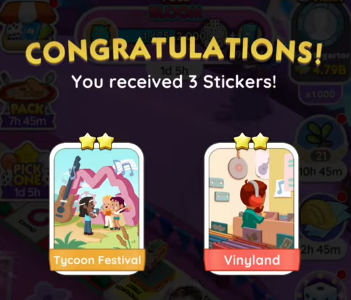In the ever-evolving landscape of mobile gaming, Monopoly Go has emerged as more than just a digital adaptation of the classic board game. Beyond its entertainment value, the game’s sticker system has inadvertently become a reflection of societal behaviors, economic disparities, and even cultural trends. Monopoly Go stickers, often sought after by players to complete sets and progress in the game, mirror real-world dynamics in surprising ways.
The Scarcity Mindset and Economic Inequality
One of the most striking parallels between Monopoly Go stickers and real life is the concept of scarcity. Just as in the real world, where resources are unevenly distributed, some stickers are rarer than others, creating a hierarchy among players. Those who buy Monopoly Go stickers from third-party sellers or trade aggressively often gain an advantage, echoing how wealth and access to opportunities operate in society. This dynamic raises questions about fairness and the ethics of leveraging financial power to bypass in-game challenges.
Consumerism and the Rush to Collect
The frenzy to collect every sticker in Monopoly Go mirrors modern consumer culture, where the pursuit of completeness—whether in fashion, technology, or even social media validation—drives behavior. The desire to buy Monopoly Go stickers instead of earning them through gameplay highlights a broader societal impatience, where instant gratification often trumps the satisfaction of gradual achievement.
Community and Collaboration
On a more positive note, the trading system for Monopoly Go stickers fosters community interaction. Players often band together to help each other complete sets, much like grassroots movements or mutual aid networks in the real world. This aspect of the game underscores the importance of cooperation in overcoming systemic barriers, offering a subtle critique of hyper-individualistic societies
Monopoly Go stickers may seem like a simple game mechanic, but they serve as a microcosm of larger social and economic issues. Whether players choose to buy Monopoly Go stickers or trade them organically, their actions reflect deeper cultural values. By examining these virtual transactions, we gain insight into real-world behaviors—making Monopoly Go an unexpected lens for social commentary.


